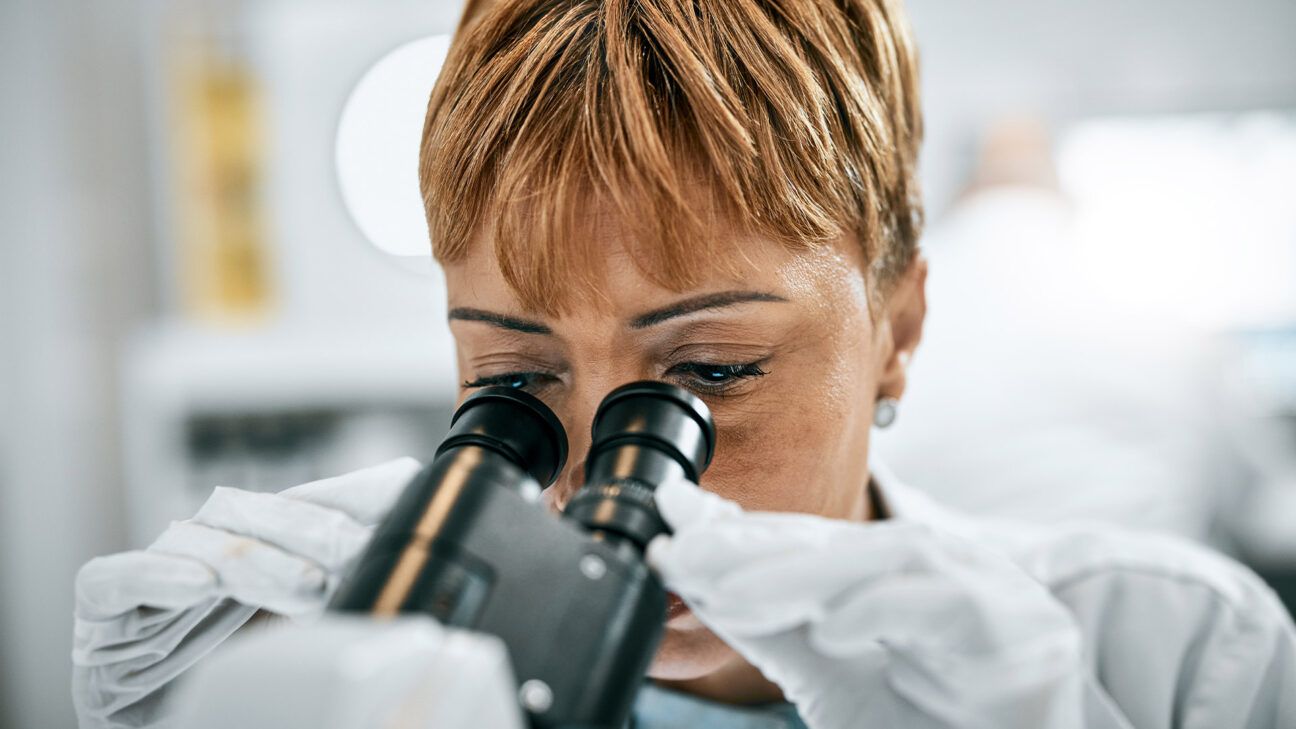
- FDA requires warning for CAR-T therapy over concerns about blood cancer risk.
- CAR-T — or chimeric antigen receptor T-cell — therapy harvests a person’s own immune cells, altering them genetically, to treat cancer.
- About 27,000 people have undergone CAR-T therapy, and at least 25 of those people have developed a rare blood cancer, according to the FDA.
A recent warning by the FDA about CAR-T therapy suggests that the treatment can increase the risk of certain rare blood cancers. The agency required makers of the drug to put a boxed warning, its strongest safety notice, on the prescription information for the therapy.
CAR-T — or chimeric antigen receptor T-cell — therapy harvests a person’s own immune cells, altering them genetically, and putting them back into the person’s body to treat blood cancers like leukemia, multiple myeloma and lymphoma. The process, which was approved by the FDA in 2017, adds a gene for a receptor to the T cells, allowing them to attach to the specific cancer’s antigen; each type of cancer requires tailoring the genes to that particular antigen.
According to the FDA, about 27,000 people have undergone CAR-T therapy, and at least 25 of those people have developed a rare blood cancer. An abstract published last year also suggested the risk of this kind of therapy, stating that several cases of lymphoma had resulted from it. Scientists have also been researching the use of CAR-T therapy for other diseases, such as autoimmune diseases and viral infections like HIV and hepatitis C.
Four manufacturers of CAR-T therapy drugs — Bristol Myers Squibb (Abecma and Breyanzi); Gilead Sciences’ Kite Pharma (Yescarta and Tecartus); Johnson & Johnson (Carvykti); and Novartis (Kymriah) — were notified by the FDA that they must submit proposed label changes in the next month that state CAR-T therapy can increase the risk of rare blood cancers.
What’s the risk involved with CAR-T therapy?
The risk of CAR-T therapy is known, but statistically very rare, and the benefits of the treatment still outweigh those potential downsides, Dr. Wael Harb, board-certified hematologist and medical oncologist at MemorialCare Cancer Institute at Orange Coast and Saddleback Medical Centers in Orange County, CA, told Healthline.
“This risk is associated with the use of a virus (usually a lentivirus) to integrate the gene encoding the CAR into the T cells’ DNA. The concern is that this integration could potentially activate oncogenes if it occurs near cancer-associated genes,” Harb said. “The overall benefits of CAR T-cell therapy, especially in cases of blood cancers where patients have few other options, are still considered to outweigh these risks.”
While the FDA warning will raise some concerns for doctors and physicians, it’s still not clear that the rare blood cancers in some people were directly caused by the therapy, according to Dr. Naveed Wagle, neuro-oncologist at Pacific Neuroscience Institute in Santa Monica, CA and Associate Professor of Translational Neurosciences at Saint John’s Cancer Institute in Santa Monica, CA.
“CAR-T therapy is still very early in its clinical development. The approval of these medications was warranted based on the clinical trial efficacy they showed,” Wagle said. “The new data in post-approval use is correlative and does not show a direct causal relationship. However, it does raise concerns and warrants close surveillance.”
Harb echoed the need for monitoring, pointing out that the FDA warning doesn’t suggest that CAR-T therapy should be suspended.
“Given the transformative impact of this therapy in treating blood cancers, especially in patients with relapsed or refractory disease, it’s likely that many doctors will continue to consider it a valuable treatment option,” Harb said. “The actual impact on the use of CAR T-cell therapy will depend on individual assessments of risk versus benefit, further findings from ongoing investigations, and possible updates to treatment guidelines or protocols.”
Are there other options for treating blood cancer?
According to the National Cancer Institute, CAR-T therapy leads to long-term survival in only roughly half of people who undergo it, and the cost — hundreds of thousands of dollars — can be prohibitive. There are still multiple forms of treating cancer, although they need to be tailored to a person’s needs through consultation with their physician — but there are still risks to those as well, Harb said.
“These include traditional treatments like chemotherapy, radiation, and small molecule drugs, each of which also carries its own risks and benefits. For multiple myeloma patients, treatments such as alkylators, immunomodulatory drugs, and autologous stem cell transplantation are alternatives, though they too are associated with a risk of secondary cancers,” Harb said. “The choice of treatment should be a decision made in consultation with healthcare providers, considering the individual patient’s situation, the type of cancer, previous treatments, and overall health.”
Takeaway
The FDA has ordered the manufacturers of six CAR-T therapy drugs to put a warning on their prescription information that a rare form of blood cancer is a risk of the treatment.
CAR-T therapy, which is used to treat blood cancers like leukemia, multiple myeloma and lymphoma, involves taking cells from a person’s body, altering them genetically to bind to the antigens of cancer cells, and then reinfusing them into the person.
Statistically, the risk of rare blood cancer from CAR-T therapy is low, but physicians say more monitoring and testing is needed.
